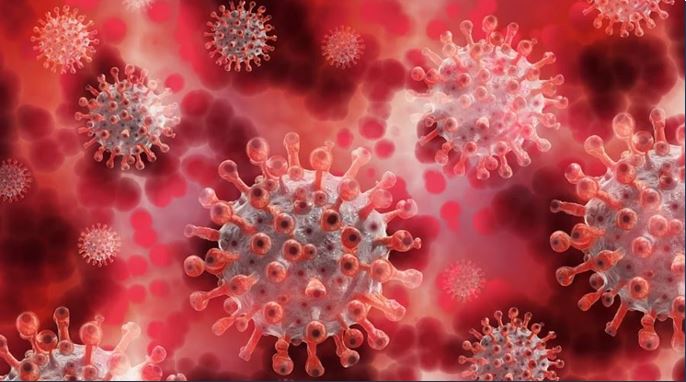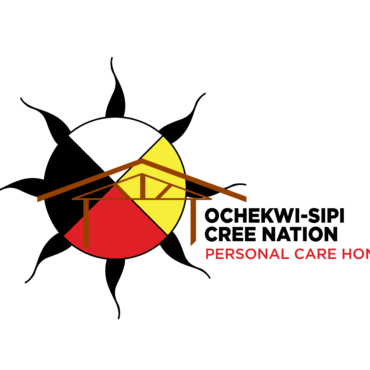COVID-19 Information for Manitobans
On this page:
PLEASE CALL FISHER RIVER HEALTH SERVICES IF YOU SUSPECT YOU HAVE COVID-19 – 204.645.2689
What is COVID-19?
Coronaviruses (CoV) are a large family of viruses that cause illnesses ranging from the common cold to more severe diseases. COVID-19 is an infectious disease caused by the SARS-CoV-2 virus, a virus in the coronavirus family. Most people infected with the virus will experience mild to moderate respiratory illness, but the virus can affect different people in different ways. Some will become seriously ill and require medical attention.
Viruses like SARS-CoV-2 are constantly changing through mutation. New variants occur over time; sometimes the new variants emerge and disappear, while others last. With SARS-CoV-2 some of the variants are called variants of concern. Variants of concern may do one or all of the following:
- Spread more quickly in the population compared to the current strain
- Cause more severe disease
- Compromise previous infection or vaccine induced immunity
Given these potential changes, public health officials at all levels (internationally, nationally and provincially) continue to actively monitor and study emerging COVID-19 variants.
Visit the World Health Organization for more information on the naming of COVID-19 variants of concern and variants of interest.
PLEASE CALL FISHER RIVER HEALTH SERVICES IF YOU SUSPECT YOU HAVE COVID-19 – 204.645.2689
Vaccines
Vaccines play an important role in minimizing the impact of COVID-19 in the population, including significantly lowering the risk of severe outcomes, such as hospitalizations and death. Vaccines are the best defense against the virus and individuals are encouraged to get vaccinated as soon as they are eligible, and ensure they receive all the doses recommended for the best protection. For more information on the COVID-19 vaccines, see manitoba.ca/covid19/vaccine/index.html.
Treatment
Although not a substitute for vaccine, treatments for COVID-19 are available and provide further protection for individual, who are at higher risk of severe disease, including those who have been vaccinated. Treatment is only effective in the very early phases of infection so early testing after symptoms start is important. Please visit manitoba.ca/covid19/treatment/index.html, call Health Links – Info Santé (204-788-8200 or 1-888-315-9257), or talk to your health care provider for more information and to find out if you are eligible.
Should I test or go for testing?
Testing for COVID-19 is recommended when a positive or negative result will inform decisions about your treatment or care, or for certain workplace settings. To determine if you are eligible for testing, please visit manitoba.ca/covid19/testing/testing-eligibility.html
If you have symptoms of COVID-19, are not eligible for PCR testing, but have access to rapid antigen tests you can test yourself. If you have a negative result do not assume you are negative for COVID-19, it is recommended you take a second test 24 hours after your first and if available a third test 24 hours after the second. For more information on rapid antigen test and how to use them, see: manitoba.ca/covid19/testing/rat.html.
If all tests are negative you can resume your regular activities as long as you have no fever and your symptoms have been improving for 24 hours. If you have been advised to self-isolate (quarantine), you are still required to complete your self-isolation (quarantine) period.
PCR test results can be accessed securely online at sharedhealthmb.ca/covid19/test-results/. Timelines for COVID-19 test results may vary due to current testing volumes and the location where you were tested. If you do not have a Manitoba Health Family Registration Card, are not a resident of Manitoba, or you are unable to access your test results, call Health Links – Info Santé at 204-788-8200 or toll free at 1-888-315-9257.
PLEASE CALL FISHER RIVER HEALTH SERVICES IF YOU SUSPECT YOU HAVE COVID-19 – 204.645.2689
What are COVID-19 symptoms?
Symptoms may take up to 14 days to appear after exposure to COVID-19. Some of the more commonly reported symptoms include:
|
|
|
|
|
|
|
|
- Pink eye (conjunctivitis)
|
|
|
|
|
|
- Skin rash of unknown cause
|
- Vomiting, diarrhea for more than 24 hours
|
- Nausea or loss of appetite
|
|
|
- Poor feeding in an infant
|
While many people will develop only mild symptoms, some groups appear to be more vulnerable to COVID-19. Those at higher risk are more likely to develop more serious conditions such as pneumonia, acute respiratory failure and kidney failure, leading to hospitalization or even fatal outcomes..
Anyone who is isolating should also be monitoring their health for any new or worsening symptoms, including fever, cough, headache or breathing difficulties. If you start to feel worse during your isolation period, call Health Links – Info Santé at 204-788-8200 or 1-888-315-9257.
Call 911 if your symptoms are severe (i.e. new or severe chest pain, trouble breathing, bluish lips or face, sudden confusion, symptoms of stroke such as leg or arm weakness, numbness, slurred speech or facial drooping). It is important to seek medical attention early to get the care you need.
PLEASE CALL FISHER RIVER HEALTH SERVICES IF YOU SUSPECT YOU HAVE COVID-19 – 204.645.2689
How is COVID-19 spread?
Respiratory droplets and aerosols are made when we do every day things like talk, cough, breathe, sneeze, or sing. The virus that causes COVID-19 can spread from person to person through respiratory droplets and aerosols from someone infected with the virus. COVID-19 may also spread by touching something that has the virus on it, then touching your mouth, nose or eyes with unwashed hands. You can transmit COVID-19 before you start showing symptoms or without ever developing symptoms.
What is isolation and when to do it?
Isolation is defined as the period of time in which individuals who have tested positive for COVID-19, or have symptoms of COVID-19, are required to stay away from others to limit further spread. Isolation can reduce the spread of COVID-19 in your household and community. It is important to follow the advice of your local public health authority about when and how to isolate.
Isolation is recommended when you test positive on a laboratory based (e.g. PCR) test, on a rapid antigen test, or if you have symptoms without testing:
- You should isolate for 5 days after your symptoms started and until you have no fever and your other symptoms have improved over the past 24 hours.
- If you don’t have symptoms and test positive, you should isolate for 5 days after your test date.
You should also avoid non-essential visits to high-risk settings (e.g. personal care homes, health care facilities, etc.) and non-essential contact with individuals at high risk of severe outcomes for 10 days after your symptoms started, or if you don’t develop symptoms, for 10 days after your test date. As well, you should wear a well-made, well-fitted mask during this 10 day period if/when you have contact with other people. For information on how to choose, use and care for a mask please visit https://www.gov.mb.ca/covid19/resources/masks.html or https://www.canada.ca/en/public-health/services/publications/diseases-conditions/covid-19-safely-use-non-medical-mask-face-covering.html
Lingering symptoms such as cough or loss of taste or smell can persist beyond the isolation period, and if present, are not reasons for continuing isolation.
Note: individuals who have travelled internationally, must follow Federal testing and isolation/ self-isolation (quarantine) requirements.
How to Isolate?
- stay at home and avoid contact with other people (including household members)
- do not leave home to go to work, school or other public places unless you require emergency or urgent medical care.
- stay in your own room or on a separate floor from other members of your household. Avoid sharing personal and household items. If possible, use a separate bathroom. If you must share a bathroom, it should be cleaned and disinfected frequently.
- avoid sharing personal and household items;
- if possible, use a separate bathroom, but if you must share a bathroom, it should be cleaned and disinfected frequently;
- if you need to leave your room or floor, wear a well-made, well-fitting mask and stay at least two metres (six feet) away from other members of your household.
- avoid contact with pets that live in your home.
- clean your hands regularly – wash your hands with soap and water for at least 15 seconds or use alcohol-based hand sanitizer that contains at least 60 per cent alcohol
- cover your coughs and sneezes
- keep your environment clean
- make sure your home has good airflow
- you should not have any visitors over to your home during this time. If you live alone, arrange to have groceries and supplies dropped off at your door to minimize contact with others.
- cancel or notify any service providers who regularly come into your home that a household member is sick, has COVID-19, or is waiting test results. This includes home care workers, occupational therapists, physiotherapists, social workers, etc. They will discuss how best to provide care during this time.
- rest, eat nutritious food, and drink plenty of clear fluids (e.g., water).
- take acetaminophen (Tylenol®) or ibuprofen (Advil®) for fever and soreness.
Illness can be stressful if you live alone. Stay connected with family or friends by phone, email, social media or other technologies.
PLEASE CALL FISHER RIVER HEALTH SERVICES IF YOU SUSPECT YOU HAVE COVID-19 – 204.645.2689
What about my household members or other close contacts?
If you have symptoms, test positive or are awaiting test results, all household members should self-monitorfor symptoms COVID-19 for 14 days following exposure. They are not routinely required to self-isolate (quarantine), except where advised by public health in high risk situations, such as outbreaks, or in health care facilities. If you live in a First Nation community, check with your community for further guidance. You are no longer required to notify your close contacts, however, your household contacts, need to be very cautious while a case or symptomatic individual is isolating, and avoid any non-essential visits to high-risk settings or non-essential contact with individuals at high risk for severe disease from COVID-19. If you live with a health care worker they should check with their occupational health on any additional requirements before returning to work.
If any household contacts develops symptoms, they should isolate immediately and check the online COVID-19 Screening Tool sharedhealthmb.ca/covid19/screening-tool/ to determine if testing is recommended for them.
PLEASE CALL FISHER RIVER HEALTH SERVICES IF YOU SUSPECT YOU HAVE COVID-19 – 204.645.2689
What if I live with someone who is at higher risk of developing severe COVID-19 symptoms?
Some people are at greater risk of developing severe symptoms that can result in hospitalization and even death. Higher risk groups may include people who are 60 years of age and older, people with chronic health conditions or weakened immune systems (e.g., people undergoing cancer treatment). Isolate as much as possible from the high-risk individual. If they develop symptoms, they should isolate immediately and check the online COVID-19 Screening Tool sharedhealthmb.ca/covid19/screening-tool/ or call Health Links – Info Santé (204-788-8200 or 1-888-315-9257) to determine eligibility for testing and treatment. If they are eligible for treatment, it is important to get tested early as treatment must be provided within 5 to 7 days of the start of symptoms, and can prevent hospitalization or death.
PLEASE CALL FISHER RIVER HEALTH SERVICES IF YOU SUSPECT YOU HAVE COVID-19 – 204.645.2689
What is self-isolation (quarantine)?
Self-isolation (quarantine) is the period of time in which individuals who may have been exposed to COVID-19 are required to stay away from others to limit further spread. This may include close contacts, as well as people who have been exposed though travel.
Self-isolation (quarantine) is no longer routinely recommended by public health, however you may be required to self-isolate (quarantine) for travel reasons or in situations where public health officials implement stricter requirements to reduce the spread of the virus, such as an outbreak or in health care facilities.
When self-isolating (quarantining) you should self-monitor for symptoms, and if any develop continue to isolate and check the online COVID-19 Screening Tool https://sharedhealthmb.ca/covid19/screening-tool/ to determine if testing is recommended for you.
PLEASE CALL FISHER RIVER HEALTH SERVICES IF YOU SUSPECT YOU HAVE COVID-19 – 204.645.2689
Self-isolation (quarantine) after travel
Domestic travellers (travel within Canada) are no longer required to self-isolate (quarantine), however they should self-monitor for symptoms for 14 days.
Individuals who have travelled internationally must follow Federal testing and isolation/ self-isolation (quarantine) requirements.
Federal and provincial travel restrictions are subject to change; up-to-date information (including exemptions) is available at: https://travel.gc.ca/travel-covid and www.manitoba.ca/covid19/soe.html, respectively.
PLEASE CALL FISHER RIVER HEALTH SERVICES IF YOU SUSPECT YOU HAVE COVID-19 – 204.645.2689
Do I need to self-isolate if I have been exposed to COVID-19?
At this time individuals who have been exposed to COVID-19 are not currently required to self-isolate (quarantine) if they do not have symptoms. It is recommended that you self-monitor for symptoms for 14 days following any exposure, isolate immediately if any develop and check the online COVID-19 Screening Tool https://sharedhealthmb.ca/covid19/screening-tool/ to determine if testing is recommended for you. If you think you were exposed to COVID-19 you can continue to go to work and school while self-monitoring and should respect and follow all organizational policies and guidelines that are in place to protect others.
Note: In times of increased community transmission and case numbers, public health officials may implement stricter requirements to reduce the spread of the virus. These additional measures may apply regionally or provincially. The online screening tool (https://sharedhealthmb.ca/covid19/screening-tool/) will provide guidance and direction on any new requirements.
PLEASE CALL FISHER RIVER HEALTH SERVICES IF YOU SUSPECT YOU HAVE COVID-19 – 204.645.2689





